Lehman Brothers: History On How One Of The Biggest US Banking Giants Collapsed
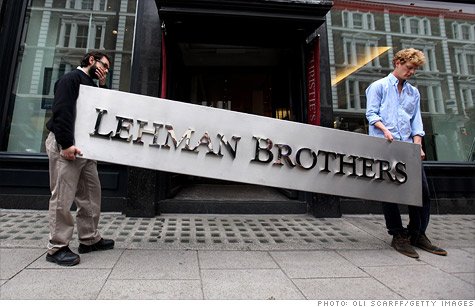
In 2008 one of the US's biggest banks, Lehman Brothers went bankrupt and took the world by surprise. This is the history of that company and what ultimately caused them to fail.
In 1844 Henry Lehman immigrated to Montgomery Alabama from Germany and opened up a small grocery and dry goods store, with no plans or knowledge that it would transform into one of the largest banks and financial institutions in the world, within 150 years. By 1850 Henry Lehman was joined in the business by his two brothers Mayer and Emmanuel and promptly renamed his business Lehman Brothers. What had once started as a simple grocery and dry goods store soon became a type of commodities broker, buying, selling and even accepting cotton as payment for goods. Montgomery Alabama was an economic center for cotton plantations at this point in time and also housed a large amount of slaves because this was about 10 years short of the Civil War. Unfortunately in 1855 Henry Lehman died from yellow fever and his brothers believed the best path forward was to dedicate almost all effort to pursuing the cotton commodities trading business. Just prior to the Civil War which began in 1861, Lehman Brothers opened an operation center in New York City which had become a commodities trading center in the past few years.

When the Civil War began, the cotton producing industry was almost completely crippled and in order to stay in business and grow, the Lehman Brothers merged with a business man and merchant named John Durr, which turned the company into Lehman Brothers & Durr Co. With Durr’s connections and financial backing, the company was able to become more recognized within the financial community, which eventually lead to larger sales and larger volume of trade. After the Civil War in 1870, Lehman Brother decided to keep headquarters in New York City and set their sights at creating a New York Cotton exchange, which offered futures and was the first of its kind. Eventually Lehman Brothers would go on to help create a coffee and petroleum exchange as well join the New York Stock exchange which would make them an established pillar of the financial community in New York.
Although the majority of work Lehman Brothers did involved the commodities market, their reputation began to help them branch into other fields of financial services. For example due to southern and northern connections , Lehman Brothers was chosen to sell Alabama post war reconstruction bonds to the public, as well as in 1899 selling its first initial public offering of a stock. In the next 100 years Lehman Brothers would go on to offer some of the biggest IPOs known at the time such as Sears and Roebucks and Macys & co.
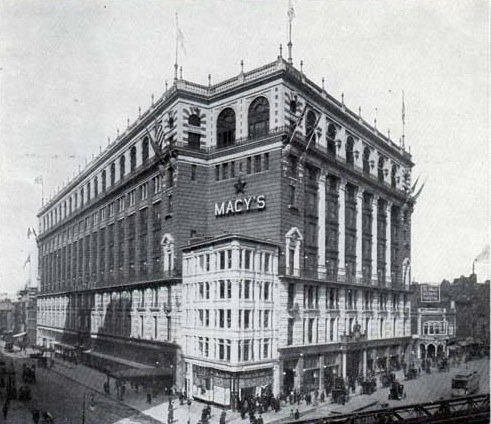
Lehman Brothers saw real growth during the steam revolution within the United States due to firms who wanted to build railroads and other infrastructure needed capital to do so. Lehman Brothers began to cooperate with other firms such as Kuhn, Loeb and Co. to offer the capital needed to fund various construction ventures. What had started as a commodities broker had slowly transformed into a full service investment bank. Soon Lehman Brothers was involved in financing some of the country’s biggest railroad projects such as Chicago, Ohio, Pennsylvania and Baltimore lines, by selling bonds to the general public through Wall Street. This continued for the next couple of decades until the Great Depression where Lehman Brothers was relatively safe, but the lack of companies borrowing for investment hurt their earnings. Lehman Brothers was able to come up with new and inventive lending strategies during the Great Depression like venture capital lending for future businesses like RCA , the potential of which was unrealized by many other investment banks. In 1975 Lehman Brothers would go on to merge with rival Kuhn, Loeb and Co., but only about 10 years later in 1984 would be purchased by American Express. Eventually in 1994 American Express would go on to decide the Lehman Brothers purchase was not a strong move for them and Lehman Brothers would ultimately divest and become independent until its bankruptcy in 2008.
In hindsight the Grahm-Leach-Bliley act, an act signed into effect in 1999 under the Clinton administration, which deregulated banks and removed Glass-Steagall, ironically was a large contributing factor to the downfall of Lehman Brothers. In 1999 Lehman Brothers was one of the banks that was lobbying for the removal of Glass-Steagall, the removal of which lead Lehman Brothers to make riskier bets that ultimately would bankrupt it.
In the years leading up to the financial crisis of 2008, Lehman Brothers, newly independent from American Express, saw the housing boom in the United State happening and became very aggressive in purchasing mortgage lenders. By 2004 Lehman Brothers owned 5 of the biggest mortgage lenders in the business, however included in that count was BNC Mortgage and Aurora Loan Services, two notorious subprime lenders. In the beginning and mostly on paper, these two lenders were some of the most profitable assets Lehman Brothers owned which only helped fuel the lending even further. By 2007, hitting new stock market highs and a market capitalization of over 60 billion, the party for Lehman Brothers was at an all time high. What Lehman Brothers did not see however, was cracks in the housing bubble were starting to appear and by the time they noticed it, Lehman brothers had acquired debt more than four times what the company was even worth! They tried to remedy the situation by cutting the entire BNC Mortgage operations, but the crisis only continued to ramp up, while shares of Lehman Brother stocks plummeted. Lehman Brothers tried to liquidate assets, issue shares and do almost about anything to stay in business, but they were way over their heads.
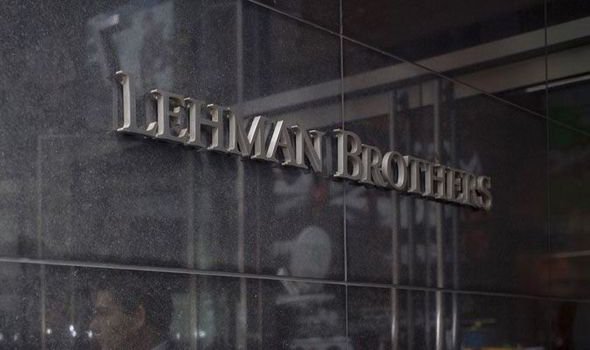
Ultimately news came that Lehman Brothers hedge fund clients and short term creditors began to cut ties with them and the stock plunged to unrecoverable levels. In the week before declaring bankruptcy, Lehman Brother CEO at the time, Richard Fuld, was to have Lehman Brothers bought out by various other financial institutions, but with massive amounts of debt and other companies trying to save themselves from the same fate, talks all failed. Ultimately talks with the Federal Reserve failed as well and Lehman Brothers was not going to be bailed out. Even the government was unable or not willing to stop the biggest bankruptcy in history based on the pure amount it would take to do so. On September 14th Lehman Brothers declared chapter 11 bankruptcy. Lehman Brothers was liquidated and many of the sectors that were relatively in good condition were purchased by banks like Barclays.
The cost of the government’s inability to bail out Lehman Brothers single handedly almost crashed the world economy in the short term due to the massive amounts of net worth that were destroyed when the company went under. All accounts show that Lehman Brothers believed that it was too big to fail due to systematic risk and many of its actions prior to the crisis showed this. The tradeoff that the government had to take was a short term financial hit by letting Lehman Brothers fail, but long term financial institutions like Lehman Brothers should not be able to exist. Federal Regulation in large could have prevented the failure of Lehman Brothers and spared the needless destruction of Americans net worth. Had legislation like Glass-Steagall not been repealed Lehman Brothers might still exist.
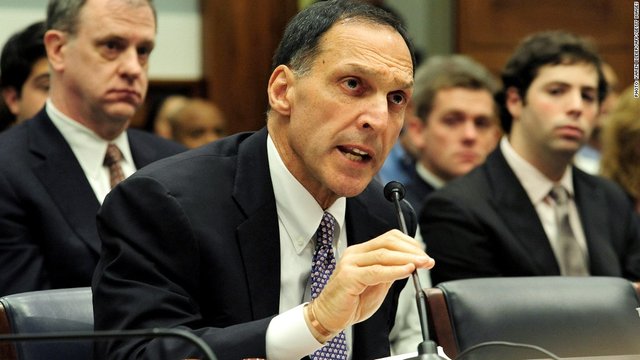
There were a few criminal allegations aimed towards Lehman Brothers executives during investigations that took place after the collapse, including intentionally misleading the government and investors of the condition of the company until it was too late. When investors began to lose confidence many inside the company claimed balance sheets were changed and creditors were lied to in order to try to save the company from bankruptcy. There were even reports done by bankruptcy court official Anton Valukas who investigated and interviewed hundreds of employees, which said there was enough evidence to prosecute executives like CEO Richard Fuld, but no prosecution to date has ever occurred.
In the end, the acquisition of mortgage companies like BNC Mortgage which practiced aggressive subprime lending and predatory lending tactics are what killed Lehman Brothers. When the housing bubble burst, Lehman Brothers was stuck with tens of billions of dollars worth of assets that were toxic and worth nothing. If housing prices had continued to rise for a bit longer or if Lehman Brothers had caught onto the collapse a bit quicker they might have been able to save the business as a whole, but we’ll never know.
-Calaber24p
Excellent article.
It always amazed me that Lehman Brothers were a scapegoat. They didn't cause the crash, they were simply the highest candle when it did.
yeah they had to make an example and send the other banks a message that they wouldnt continue to bail them out.
Bingo!
This is a great summary for some one who wants to know about what happened to Lehman.... You should consider starting something like this for other topics too :)
Overdose: The Next Financial Crisis
Interesting post... I wonder whether any lessons have been learned at the majors since then. I know in the UK the banks are even bigger, and even more interconnected now than they were before the 2008 crash, so while they have slightly better balance sheets, we're still in for a hell of a time in this country if/when things go pear shaped again. Why they didn't break the biggest banks up following the crash is beyond me.
@calaber24p you forget to mention the next Lehman brothers which is Deutsche Bank (DB) and Fannie Mae. Thats the point of looking back at history so you can learn from it and see it happening now.
158 years on business !
Great story, thank you
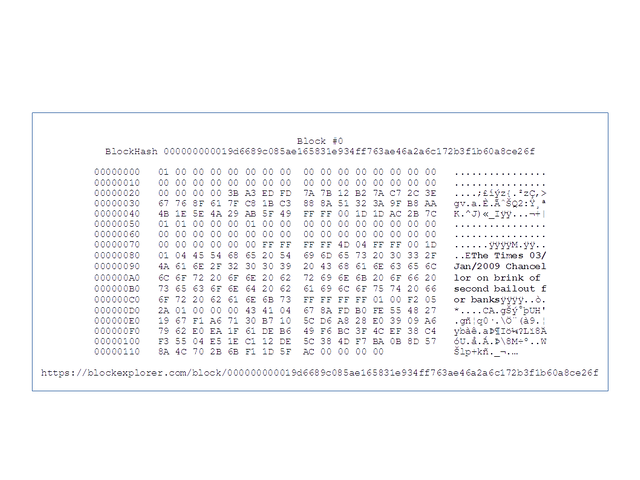
Interesting chronology: Sept 15 2008 - Lehman bancruptsy -> Oct 31 2008 Satoshi Nakamoto published Bitcoin description-> Jan 3 2009 Bitcoin #0 block generated.
In coinbase parameter of block #0 text inserted: The Times 03/Jan/2009 Chancellor on brink of second bailout for banks:
nice artile.
I watched The Big Short (pretty good movie). Talks about the 2008 crash. The treasury managed to bail out big banks but wasn't able to help Lehman Brothers. This is why we keep everything on the books. So we know how screwed we are and don't allow thousands or millions to go bankrupted. Buying CDS was a genius idea for several individuals but did they buy from Lehman Brothers? I have yet to find out.
Good article and you make a very good point in your last paragraph about predatory lending tactics. All of that would not have been possible if George W. hadn't eliminated the predatory lending laws right after he got into office.